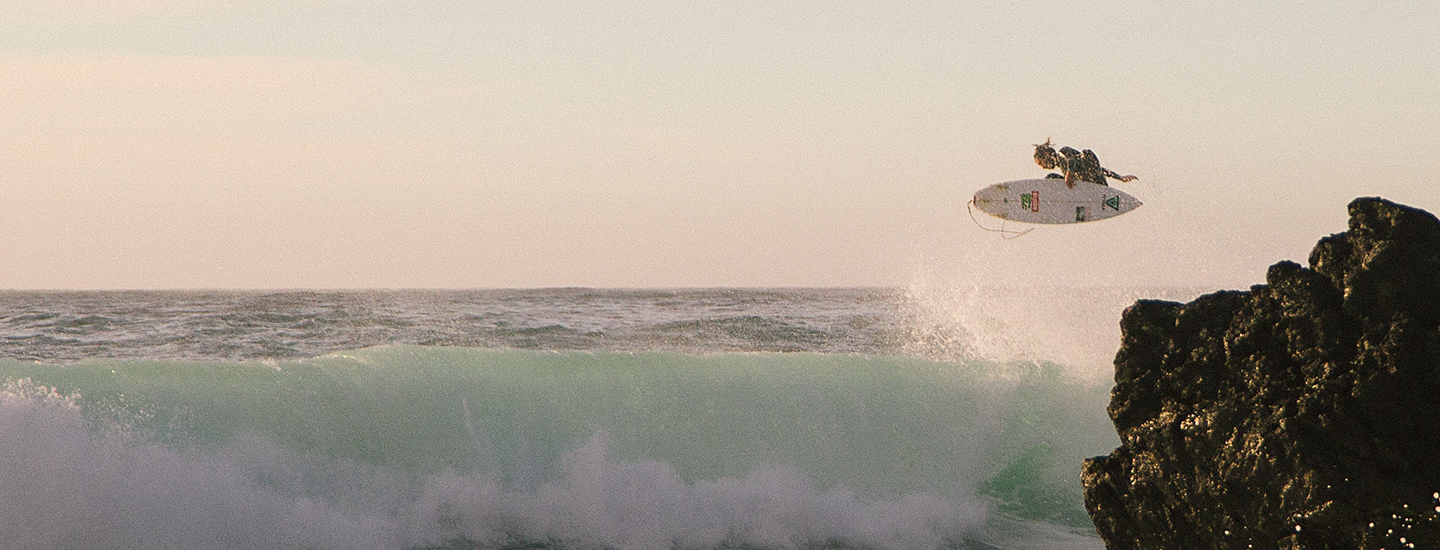
Wetsuit technology has advanced in many incredible ways over the last 15 years to make cold-water surfing, freediving and ocean recreation more accessible than ever. Sadly, it has come at a cost. Conventional wetsuits have typically been made from neoprene, which has amazing insulating and flexibility properties but is a non-renewable fossil fuel-based material.
Fortunately, two brands are bringing a higher standard to cold-water gear by using innovative materials to provide high performance while minimizing their impact. Both Vissla’s Eco-Seas and Patagonia’s Yulex wetsuits use natural rubbers, non-toxic glues and recycled plastic to reduce the impact of their wetsuits.
With these choices, you can take one more step toward minimizing the environmental impact your recreation has on the world.
Vissla's Eco-Seas Wetsuit
 An early member of Surfrider's Surf Industry Coastal Defenders program, Vissla is supporting the Surfrider Foundation and is also driving innovation within their line to provide environmentally responsible choices.
An early member of Surfrider's Surf Industry Coastal Defenders program, Vissla is supporting the Surfrider Foundation and is also driving innovation within their line to provide environmentally responsible choices.
Released in the fall of 2016, Vissla’s newest member of their premium wetsuit collection, the Eco-Seas is joining the advancement of eco-friendly wetsuits. Developed in conjunction with Sheico, the Eco-Seas wetsuit utilizes some of the most earth conscious materials and production techniques including natural rubber instead of neoprene, water based glues rather than solvent based materials for laminating, recycled plastic bottles used for the interior and exterior jerseys and even embossed branding instead of unnecessary solvent based printing. All blending together with minimal seams and a tailored fit to ensure warmth and performance in a flexible and environmentally friendly wetsuit.


After years of development Sheico finalized NaturalPrene™. This cutting edge material is a Natural Rubber Foam harvested from renewable rubber trees that replaces traditional neoprene. NaturalPrene™ is made from 85% natural rubber and 15% synthetic rubber. Aqua-A™ lamination glue is water based and completely solvent free with no harmful chemicals. Aqua-A™ replaces traditional solvent based glues in the lamination process. Upcycled Ultraspan™ water repellent jersey made from recycled bottles replaces traditional petroleum based fabrics. Each wetsuit uses approximately 45 recycled bottles to make up the material used in the jersey lining. Upcycled Thermal full body lining insulates heat and dries fast. Together these Eco friendly materials make the Eco-Seas wetsuit warm, soft, and stretchy, allowing for more freedom of movement while surfing and more ease to put on and take off.
With every purchase of an Eco-Seas wetsuit on Vissla's webstore, customers receive a gift one-year individual Surfrider Foundation membership!
Patagonia's Yulex Wetsuits
 Patagonia’s mission is to build the best product, cause no unnecessary harm and use business to inspire and implement solutions to the environmental crisis.
Patagonia’s mission is to build the best product, cause no unnecessary harm and use business to inspire and implement solutions to the environmental crisis.
In 2008, Patagonia started experimenting with renewable natural rubber to help the industry reduce reliance on petrochemicals. Their R&D work with hevea rubber eventually revealed another benefit that was just as important—because the polymer was produced in trees instead of factories, using solar energy instead of generated electricity, up to ~80% less climate-altering CO2 was emitted in the manufacturing process when compared to conventional neoprene. New in the fall of 2016, Patagonia introduces neoprene-free wetsuits made with natural rubber from sources that are Forest Stewardship Council® certified by the Rainforest Alliance. The innovation doubles down on the company’s initial entry into natural rubber and expands Patagonia’s Yulex® wetsuit offering from two to 21 full-length suits for men, women and kids.


The entire line of Patagonia’s wetsuits is made with natural rubber developed in partnership with Yulex and Forest Stewardship Council (FSC) certified by the Rainforest Alliance. The certification assures customers that the source plantation is not contributing to deforestation, and that it is managed in a way that maintains the ecological functions and integrity of the forest. The Rainforest Alliance—an international nonprofit dedicated to the conservation of biodiversity and sustainable livelihoods, with a focus on tropical landscapes—performs audits to confirm that the plantation adheres to the FSC’s standards on the ground.